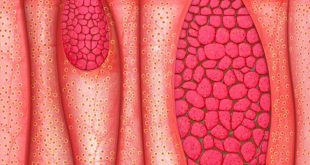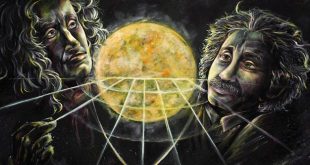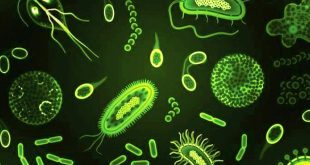Question: How are plant cells different from animal cells? Answer: Plant Cell: These cells contain cell wall also for protection. Chloroplasts a are present. Centrosomes are not present. Lysosomes are rarely present. Nucleus is present in the side of the plant cell. Animal Cell: No cell wall, only cell membrane …
Read More »NCERT 9th Class (CBSE) Science: Tissues
Question: Name the tissues responsible for the movement of the body. Answer: Muscle tissue and nervous tissue Question: How does neuron look like? Answer: A neuron is the unit cell of nervous tissue. It is a thread-like structure with cell body and axon. Question: Name the types of simple tissues. …
Read More »9th Class (CBSE) Science: Motion
Question: An object has move through a distance. Can it has zero displacement? If yes, support your answer with example. Answer: Yes the object inspite of moving through a distance can have zero displacement. Example, if an object travels from point ‘A’ and reaches to the same point ‘A’, then …
Read More »9th Class (CBSE) Science: Force and Laws of Motion
Question: Define force. Answer: It is a push or pull on an object that produces acceleration in the body on which it acts. Question: What is S.I. unit of force? Answer: S.I. unit of force is Newton. Question: Define one Newton. Answer: A force of one Newton produces an acceleration …
Read More »9th Class (CBSE) Science: Improvement in Food Resources
Question: Name any two fodder crops. Answer: Berseem, oats or Sudan grass are raised as food for the livestock, called fodder crops. Question: What do you understand by photoperiod of sunlight? Answer: Photoperiod are related to the duration of sunlight required for plant growth. Question: Name two kharif crops. Answer: …
Read More »9th Class (CBSE) Science: Gravitation
Question: What is the value of gravitational constant G: (1) On the earth, (2) On the moon. Answer: 6.67 × 10-11 Nm2 kg2 6.67 × 10-11 Nm2 kg2 Question: Which force is responsible for the moon revolving round the earth? Answer: Gravitational force. Question: Name the scientist who gave the three laws of …
Read More »9th Class (CBSE) Science: Diversity in Living Organisms
Question: Who wrote the book “The Origin of Species”? Answer: Charles Darwin in 1859. Question: Who proposed the classification of organisms into 5 kingdom? Answer: Robert Whittaker (1959). Question: Define species. Answer: All organisms that are similar to breed and perpetuate. Question: Give example of the organism belonging to Monera and Protista Kingdom. …
Read More »9th Class (CBSE) Science: Why Do We Fall Ill
Question: Define health. Answer: Health means a state of physical, mental and social well-being. Question: Define disease. Answer: Disease means being uncomfortable. Question: What do you mean by symptoms of disease? Answer: Symptoms of disease are the signs of a disease which indicates the presence of a particular disease. Question: What …
Read More »9th Class (CBSE) Science: Natural Resources
Question: Name the three processes in which oxygen is used. Answer: Combustion, respiration and in the formation of oxides of nitrogen. Question: Name two natural resources available on the earth. Answer: Water and air. Question: Give one example of biotic component of the biosphere. Answer: All animals, plants and micro …
Read More »9th Class (CBSE) Science: Structure of the Atom Quiz
NCERT 9th Class (CBSE) Science: Structure of the Atom Quiz 17 Multiple Choice Questions related to NCERT 9th Class (CBSE) Science: Structure of the Atom Quiz Canal rays are positively charged radiations which led to the discovery of positively charged sub-atomic particle called proton. As per Rutherford’s model of an …
Read More » Class Notes NCERT Solutions for CBSE Students
Class Notes NCERT Solutions for CBSE Students









